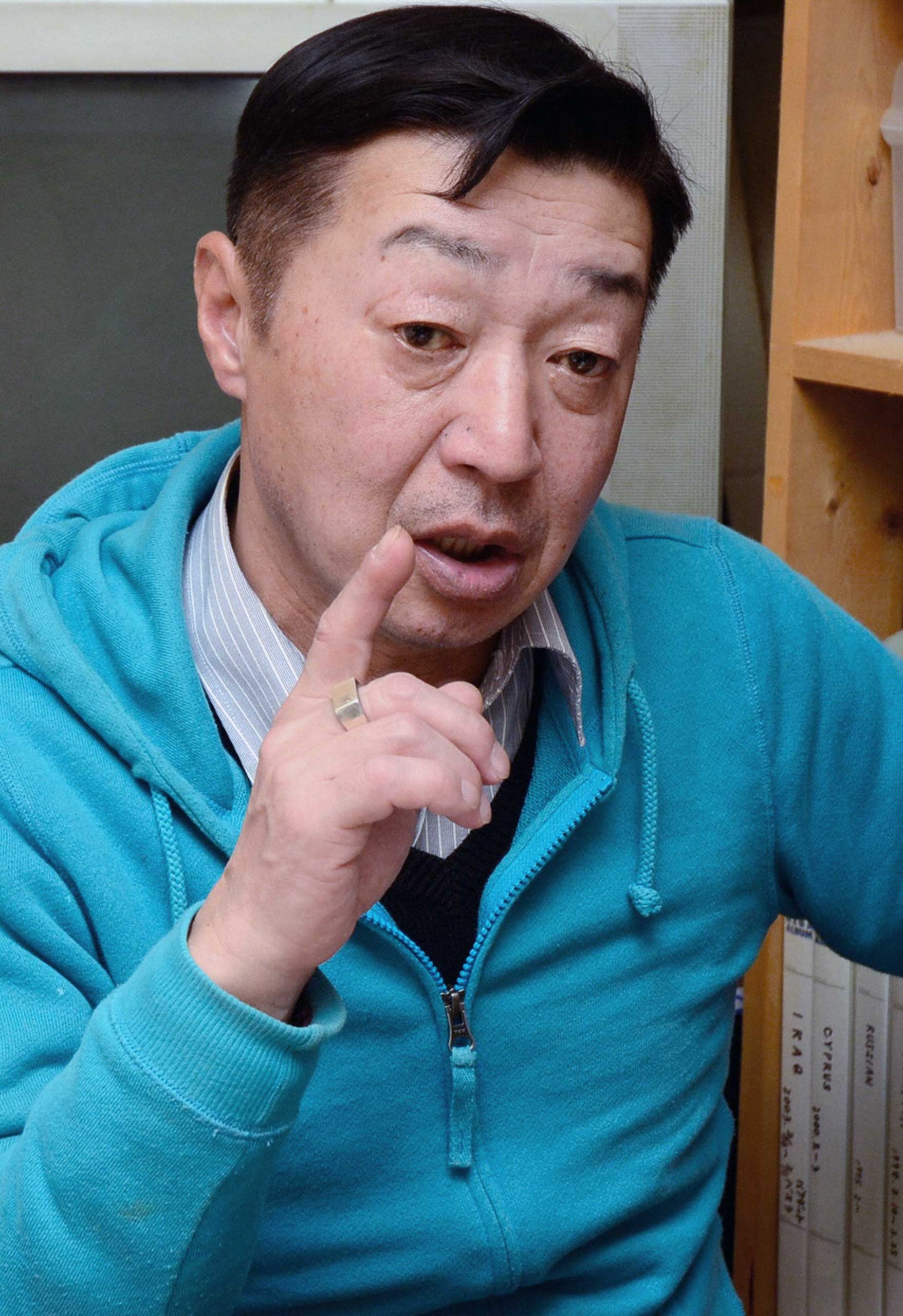
How badly does the Abe administration want to avoid another hostage crisis in Syria? Badly enough to seize the passport of a Japanese journalist for even thinking about going there.
Japan’s Ministry of Foreign Affairs (MOFA) took the unprecedented step of ordering a freelance journalist to surrender his passport after learning last week that he planned to travel to Syria later this month. The action was based on an obscure law that allows the government to take a citizen’s passport if preventing that person from traveling would protect his or her life.
The action also comes just weeks after Islamic militants brutally murdered two Japanese hostages in Syria and promised further attacks “wherever [Japanese] people are found.”
The murders shocked Japanese leaders and public alike and intensified debate over Abe’s plans to ease long-standing restraints on Japan’s military. Under Japan’s pacifist constitution, troops are not permitted to use force overseas, except in cases of strict self-defense, and cannot possess weapons deemed “offensive” in nature.
However, the passport seizure has brought sharp criticism from journalists and free-speech advocates.
“It is a dangerous precedent for the government to unilaterally decide where journalists can go and what they can report on. Revoking the passport is a form of censorship and an encroachment on civil liberties,” said Jeff Kingston, director of the Asian Studies program at Temple University’s Tokyo campus.
“Although I realize the Japanese government is balancing many difficult concerns at this time, the right of journalists to cover stories and the principle of freedom of the press must remain an inalienable right,” said Lucy Birmingham, president of the Foreign Correspondents’ Club of Japan. She said the group was considering filing a formal protest.
A ministry spokesperson said officials initially tried to dissuade Yuichi Sugimoto, 58, a little-known freelance cameraman from western Japan, from following through on plans to travel to Syria.
“[Sugimoto] had expressed in public, including through media, his intention to go to Syria via a neighboring country. MOFA, together with the National Police Agency, strongly persuaded him to refrain from the planned visit, but the man’s intention to go to Syria was not changed,” said spokesperson Takako Ito.
She said Article 19 of Japan’s passport law allows the government to order citizens to surrender their passports “in cases where there is a need to cancel a trip abroad in order to protect the life, body and assets of the passport holder.”
She said it was the first time that Article 19 had been used in a case involving a journalist.
Japan is still reeling from last month’s hostage drama, in which a troubled adventurer and a respected freelance journalist were beheaded by Islamic State of Iraq and Greater Syria (ISIS) militants. The murders came after weeks of shifting demands and the release of chilling videos that had fixated the public and dominated the government agenda.
Although the hostages had been kidnapped months earlier, militants cited Abe’s pledge of financial aid to ISIS opponents as a pretext for the murders. Abe announced a $200 million humanitarian-aid package in a speech in Cairo as part of a six-day trip to the Middle East; he cut short the visit after the crisis erupted.
Officials said last week that they had repeatedly tried to dissuade one of the hostages, journalist Kenji Goto, from traveling to Syria in October, but that he ignored their warnings. He was kidnapped shortly after entering the country.
Goto told associates earlier that he wanted to travel to Syria to negotiate the release of Haruna Yukawa, a friend and would-be private military contractor who had been kidnapped in August.
Sugimoto told local media this weekend that he had planned to travel to Syria via Turkey later this month to cover the plight of refugees. He said he had not planned to enter territory controlled by ISIS. He said he did not know when his passport would be returned.
The response to Abe’s handling of the hostage crisis has been generally favorable. The approval rating for the Abe Cabinet rose to 58% in early February from 53% a month earlier, while the disapproval rate dropped four percentage points to 34%, according to a survey by the Yomiuri Shimbun newspaper.
Following the crisis, Abe told members of Japan’s parliament that he planned to introduce legislation in the current session that would expand the use of Japan’s armed forces overseas, including the enabling of rescue missions for Japanese citizens and logistical support for multinational forces.
More Must-Reads from TIME
- Donald Trump Is TIME's 2024 Person of the Year
- Why We Chose Trump as Person of the Year
- Is Intermittent Fasting Good or Bad for You?
- The 100 Must-Read Books of 2024
- The 20 Best Christmas TV Episodes
- Column: If Optimism Feels Ridiculous Now, Try Hope
- The Future of Climate Action Is Trade Policy
- Merle Bombardieri Is Helping People Make the Baby Decision
Contact us at letters@time.com